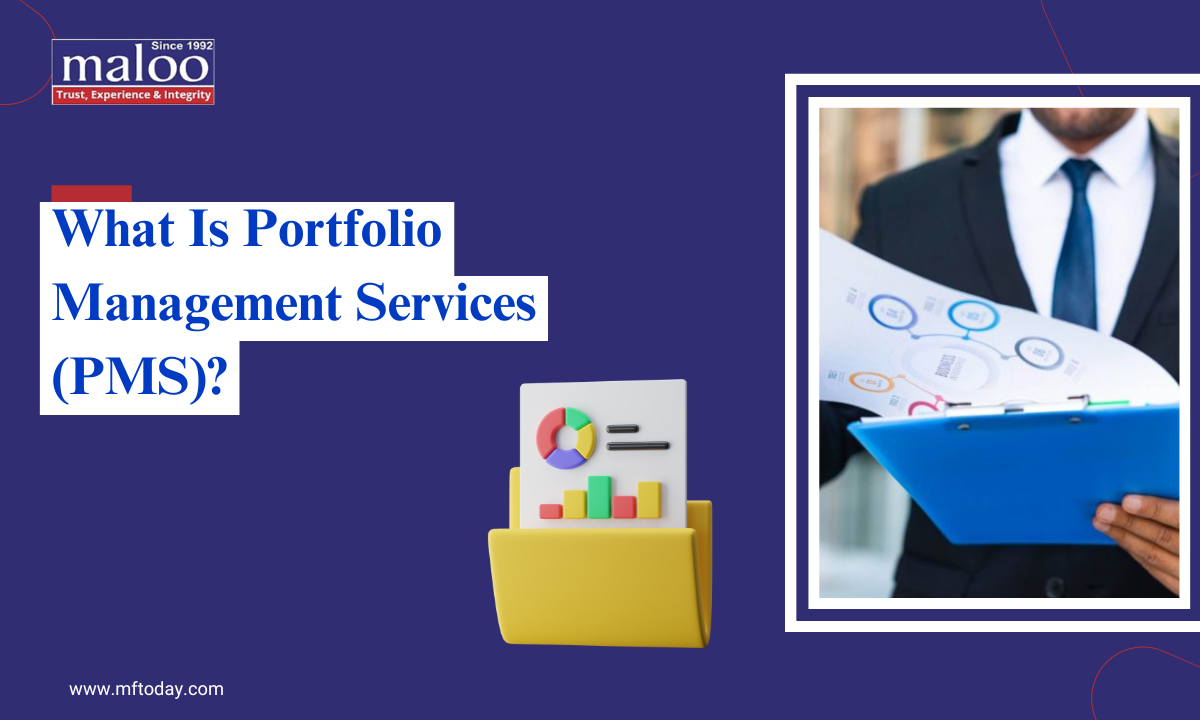Choosing the right mutual fund distributor in Jaipur is one of the most important financial decisions you can make. With 2025 bringing more awareness and opportunities in India’s investment landscape, finding a reliable distributor can help you achieve your financial goals with confidence, discipline, and transparency.
As the investment ecosystem in Rajasthan continues to evolve, investors are now more focused on long-term financial planning. A professional AMFI registered mutual fund distributor in Jaipur acts as a guiding partner who understands your financial objectives and helps you invest strategically in top-performing mutual funds across India.
Why Selecting the Right Distributor Matters
A mutual fund distributor plays a crucial role in connecting investors with the right fund schemes. Their responsibility is to simplify complex investment choices, educate investors about available options, and ensure that every decision aligns with their long-term financial plans.
The right distributor focuses on more than returns — they emphasize understanding your needs and life goals. Whether you are beginning your first Systematic Investment Plan (SIP), preparing for your child’s higher education, or planning a stress-free retirement, professional guidance ensures that every rupee you invest works effectively toward your objectives.
When you associate with an AMFI registered mutual fund distributor in Jaipur, you are assured that your investments are handled with integrity and in accordance with industry standards. Such distributors maintain complete transparency in every transaction, offering clarity on fund selection, investment timelines, and expected returns.
Key Advantages of Choosing a Reliable Mutual Fund Distributor
A dependable mutual fund distributor provides more than access to investment products — they build a long-term relationship of trust and guidance. Here’s what distinguishes a credible distributor:
1. Comprehensive Investor Education
Investors often find mutual fund categories and terms confusing. A knowledgeable distributor simplifies these concepts and helps you understand how equity funds, debt funds, hybrid funds, and index funds work. This education empowers you to make decisions confidently instead of depending on market rumors or incomplete information.
2. Goal-Based Investment Approach
Every investor has unique aspirations — some want to buy a home, others wish to build a retirement fund or secure their child’s future. A reliable distributor identifies these goals and recommends suitable schemes that match your time horizon. Whether you prefer monthly SIPs or lump-sum investments, their advice is tailored to your objectives.
3. Transparency and Accountability
A transparent distributor ensures that investors have access to every piece of information about their portfolio. You receive detailed insights into investment performance, fund expenses, and periodic growth reports. This clear communication creates accountability and helps investors stay confident throughout their investment journey.
4. Wide Range of Investment Services
A professional distributor will guide you through diverse opportunities, including:
- Systematic Investment Plans (SIPs) for a disciplined, secure future
- Child Education Investment Services to plan for future educational costs.
- Retirement Investment Services in Jaipur for long-term income security.
- Long term investment Services with High Returns for consistent, inflation-beating growth.
- Portfolio Management Services in Jaipur for those seeking customized tracking and performance monitoring.
This wide range of offerings ensures that you can build a balanced and well-diversified portfolio suited to your financial stage.
5. Digital Convenience and Customer Support
The modern investor expects instant access and real-time updates. Distributors equipped with digital dashboards and online tracking tools allow you to monitor your investments anytime. You can review your fund performance, set financial goals, and make adjustments without hassle. In addition, efficient customer support ensures quick resolution of queries, whether online or in person.
6. Personalized Financial Guidance
No two investors are alike. A reliable distributor in Jaipur provides tailored recommendations instead of generic suggestions. By assessing your lifestyle, earning pattern, and future plans, they recommend fund options that align with your comfort level and aspirations. This personal approach ensures that your investment strategy evolves as your life changes.
How Maloo Investwise Pvt. Ltd. Helps You Invest with Confidence
Maloo Investwise Pvt. Ltd. stands among Jaipur’s most trusted and AMFI registered mutual fund distributors, known for its commitment to investor satisfaction and long-term financial growth. The company focuses on transparency, continuous support, and client-centric services that make investing simple and meaningful.
With years of experience serving individual and family investors, Maloo Investwise emphasizes discipline and clarity in every interaction. From recommending top mutual funds in India to providing access to comprehensive investment services in Jaipur, the company ensures that each client receives personalized attention and reliable information.
By combining research-backed recommendations, easy digital access, and transparent communication, Maloo Investwise has become a preferred partner for those seeking structured, long-term financial success in Rajasthan.
Recognition and Awards
Maloo Investwise’s consistent performance and client trust have earned it several prestigious awards over the years, including:
- SIP Champion 2024 (North India)– Awarded by Moneycontrol – Mutual Fund Summit
- Best Performing Individual Financial Advisor (North Cities – Tier II)– CNBC TV18, UTIMF & ICRA, 2019
- Tarakki Champion 2017 (IFA North Non-Metro)– Wealth Forum, Mumbai
- Market Achievers Award 2018– National Stock Exchange (NSE)
Investment Trends in Jaipur 2025
The investment landscape in Jaipur has witnessed a significant transformation in 2025. With rising financial awareness, more individuals and families are realizing the importance of structured investments rather than relying on traditional saving methods.
The increasing popularity of mutual fund distributors in Jaipur reflects a shift toward professional guidance and informed decision-making. Digital convenience, easy access to SIPs, and investor education campaigns have encouraged many first-time investors to explore mutual funds as a practical wealth-building tool.
Here are some trends shaping the mutual fund industry in Jaipur this year:
1. Digital-First Investment Approach
Investors today prefer online services and real-time tracking. Many distributors in Jaipur now offer paperless onboarding, mobile-friendly dashboards, and instant portfolio updates. This convenience makes monitoring investments easier and encourages regular savings through SIPs.
2. Focus on Long-Term Goals
The modern investor no longer looks for short-term profits but focuses on building wealth over time. Whether it’s planning for retirement, a child’s education, or buying a new home, investors are now aligning their investments with specific financial goals through goal-based mutual fund investments.
3. Increased Interest in Equity and Hybrid Funds
With inflation and changing market dynamics, investors are exploring equity-oriented and hybrid funds for potentially higher returns. These funds balance growth potential, making them suitable for medium to long-term investment horizons.
4. Greater Demand for SIPs
Systematic Investment Plans (SIPs) remain the most preferred choice for salaried professionals and self-employed individuals. They offer a disciplined way to invest small amounts regularly, helping investors benefit from rupee cost averaging and compound growth.
5. Awareness of AMFI Registration
Investors have become cautious about dealing only with AMFI registered mutual fund distributors. This ensures that they work with professionals who adhere to regulatory standards and provide transparent, ethical, and trustworthy services.
Qualities of a Reliable Mutual Fund Distributor in Jaipur
Before finalizing your distributor, look for the following essential qualities:
- AMFI Registration and Compliance: Ensures ethical and professional standards.
- Client-Centric Approach: Focuses on your goals rather than selling products.
- Transparent Communication: Provides clear reports and regular updates.
- Strong Market Understanding: Keeps track of fund performance and changing trends.
- After-Investment Support: Assists with portfolio tracking, withdrawals, and reinvestments.
These attributes guarantee that you are working with a distributor who values long-term relationships and prioritizes your success.
How a Trusted Mutual Fund Distributor Adds Value
Partnering with a dependable mutual fund distributor ensures that you not only invest wisely but also grow steadily. Here’s how:
- They simplify the process, making mutual fund investment easy for beginners.
- They monitor your portfolio performance and recommend adjustments when needed.
- They educate investors on the importance of diversification and consistent investing.
- They guide you through market ups and downs, ensuring long-term stability.
This consistent guidance builds confidence and helps investors remain committed to their financial journey.
Why Investors Prefer Local Distributors
Local mutual fund distributors in Jaipur have an added advantage — they understand the financial behavior, goals, and preferences of investors in the region. Their accessibility and personalized attention make investing more convenient.
Instead of relying on generic online advice, local distributors build long-term relationships through personal interaction, financial education, and goal tracking. This blend of local trust and professional guidance makes Jaipur one of the emerging cities for disciplined mutual fund investing in India.
Conclusion:
In today’s dynamic market, choosing the right mutual fund distributor in Jaipur can define the success of your investment journey. Among the many options available, Maloo Investwise Pvt. Ltd. stands out for its transparent, ethical, and client-oriented approach.
As an AMFI registered mutual fund distributor, the company prioritizes investor education, disciplined investing, and consistent performance tracking. Whether you are a first-time investor or an experienced one, Maloo Investwise ensures every client receives the right guidance and continuous support to achieve their financial goals confidently.
With a focus on clarity, trust, and long-term relationships, Maloo Investwise Pvt. Ltd. remains a dependable partner for investors seeking financial growth and peace of mind in 2025 and beyond.















